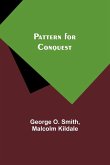The contact of two different cultures in the colonization process produces a zone of cultural mingling; people who are betwixt and between. Armstrong examines the repercussions of colonization on the lives of women characters in novels about four different post-colonial cultural contexts-Native American, Jamaican, Irish, and Mexican American. Armstrong begins by examining the particular historical contexts of each novel and the intersecting themes relating to the impact of colonialism such as liminality, mingling of cultures, loss and mourning, and reemergence of repressed history through oral tradition. She then looks at Louise Erdrich's novel Tracks in which the three primary characters respond to their experiences of personal and collective loss in the context of Anishinaabe culture; Erna Brodber's Myal is explored for the impact of the manichean colonial ideology on a Jamaican woman who is literally half-black and half-white. Next is an analysis of Julia O'Faolain's No Country for Young Men a novel about two women, one who lived through the early 20th-century movement for Irish independence and the other who is her great niece. Both have been silenced and sexually controlled by colonialism and patriarchal Catholicism. Finally the author examines Lucha Corpi's Delia's Song about a young Chicana activist who has suffered losses on several levels and recovers by writing an autobiographical novel that weaves together the personal and political issues of her life. The theories of Frantz Fanon, Victor Turner, Mary Douglas, Trinh T. Minh-ha, Gloria Anzaldua, and others are applied to the novels to give an understanding of the psychological impacts of colonization and to examine the subversive formations that evolve in cultural contact zones. Of particular interest to scholars and students in Women's, and Cultural Studies and world literature.
Hinweis: Dieser Artikel kann nur an eine deutsche Lieferadresse ausgeliefert werden.
Hinweis: Dieser Artikel kann nur an eine deutsche Lieferadresse ausgeliefert werden.








